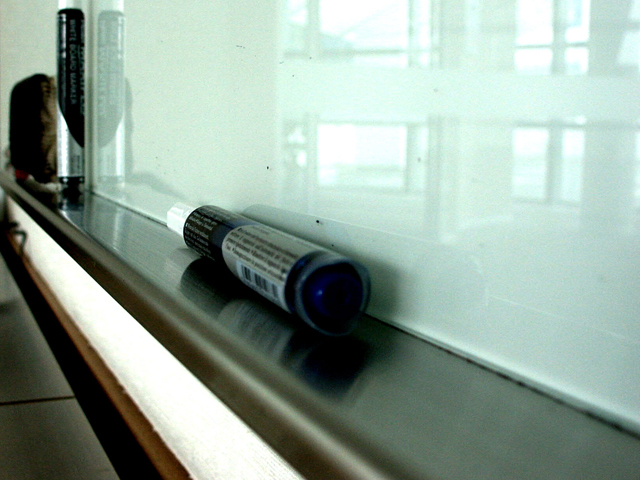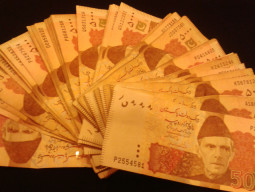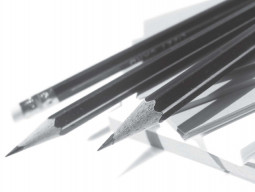
KARACHI:
With an enrolment of only 56 per cent for boys and 48 per cent for girls in primary schools in Sindh, an annual report on the state of children has called for the implementation of child-related laws, including those pertaining to compulsory education.
"The Right of Children to Free and Compulsory Education Bill 2013 was passed by the Sindh Assembly but still needs to be ratified by the governor," The State of Pakistan's Children 2013 report claims. The findings of the report were launched by the Society for the Protection of the Rights of the Child (Sparc) at the Marriott hotel on Saturday.
Speakers discussing the report said that while Sindh had emerged as the province which was making and passing a number of laws on women and children, it needed to take concrete steps to implement them.
Former senator Javed Jabbar said that the province was showing a dismal record of provision of health facilities to children. He claimed, however, that the country had, on several occasions, highlighted the issues faced by children, adding that the first five-year plan also touched upon topics of women's and children's health.
Jabbar recalled how, in Benazir Bhutto's first tenure, Pakistan had played an important role in organising the first-ever world summit for children, where leaders had discussed the issues being faced by children in their respective regions.
Activist Iqbal Detho discussed the condition of juvenile prisoners and jails in the province. He claimed that, while prisons in Sukkur and Larkana had been constructed for juveniles, there was no institutional support being provided to them.
"There is only one remand home in Sindh," he revealed. "Last year, we sent proposals for five remand homes but nothing has been done so far." By the end of 2013, Sindh had 276 juvenile prisoners, out of which 265 were under trial and 11 were convicted juvenile inmates.
Sparc regional manager Kashif Bajeer shared the highlights of the report, summing that there was a lack of planning on the part of the government to effectively resolve the issues being faced by the children.
Education
According to the report, there is one teacher for every 32 students in schools across Sindh. The report says that Sindh is the third province in terms of enrolment rate.
It cites a report by ASER Pakistan, which revealed that 29.1 per cent children are out of schools in rural areas out of which 15.4 per cent are girls. Only 28 per cent of primary and middle schools are considered fit for teaching.
Health
Sindh emerges as the second highest after Balochistan in terms of maternal mortality ratio with 314 deaths per 100,000 births.
The Thar famine is also discussed as the report calls for steps from the Sindh government in order to prevent the outbreak from affecting nearby districts.
The report says that almost 53 per cent children in Sindh did not receive measles vaccine though 10.7 million doses were available against the requirement of only 4.1 million.
Violence against children
From 2008 to 2013, there were 79,863 abduction cases reported across the country. Of these, 11,357 incidents took place in Sindh.
The report says that poor families in rural Sindh are exploited as gangs pay money for their children, promising jobs for the child in the city. The child is, however, either trafficked or is forced into bonded labour.
Child labour
With 10 million child labourers in the country, the report says that provinces should take immediate steps to pass legislation for the abolition of bonded labourers.
In 2013, the courts freed 1,871 bonded labourers, of which the highest number, 1,260, were rescued from Sindh.
Published in The Express Tribune, May 25th, 2014.
COMMENTS (3)
Comments are moderated and generally will be posted if they are on-topic and not abusive.
For more information, please see our Comments FAQ














































We ourselves are the biggest cheaters in every walk of life. We teach our kids to lie, cheat & be dishonest.....Taleem comes from school & Tarbiyat comes from home. But un-fortunately it is observed that the society expects both Taleem & Tarbiyat should be taught in school.....the elite class parents have no time for their kids, but make money left, right & center...financial greediness in order to be ahead of their friends / relatives etc; show-off of wealth, discrimination between have & have-nots have forced people to snatch from each others mouth....the resultant situation is for all to see.....unless we accept the harsh reality with honesty, we will surely find solution. But unfortunately, there is not a glimmer of light at the end of the tunnel...there have been many enlightened people amongst us who have been observed to propose different solutions with utmost honesty for present problems, but most of those solutions seem to be going to deaf ears.....only Allah swt knows best. Because most of them are busy in making the majority people fool. Most of us seem to have forgotten that one day we have to answer to Allah swt.....why we are doing, what we are doing without the slightest of thought that may benefit the poor people. If we can only answer WHY ?
The biggest teacher is the world around a child.......when he looks at the pathetic inept leaders, the ramshackle roads, the chaotic traffic, the politicised police, the inefficient courts, the high handed military, the religious extremists, the lack of entertainment, the dishonest businessman, the zero value of life, the sheer hypocrisy displayed all around.......and most importantly HIS PARENTS WHO TELL HIM THAT IF HE HAS TO PROGRESS HE HAS TO BECOME LIKE THEM....then what do you expect.
In Pakistan new generation is taught dishonesty, wickedness and callousness by its parents which is further cemented by the corrupt society so the formal education even when imparted has no effect on these new generations as each of them is worse than the previous one